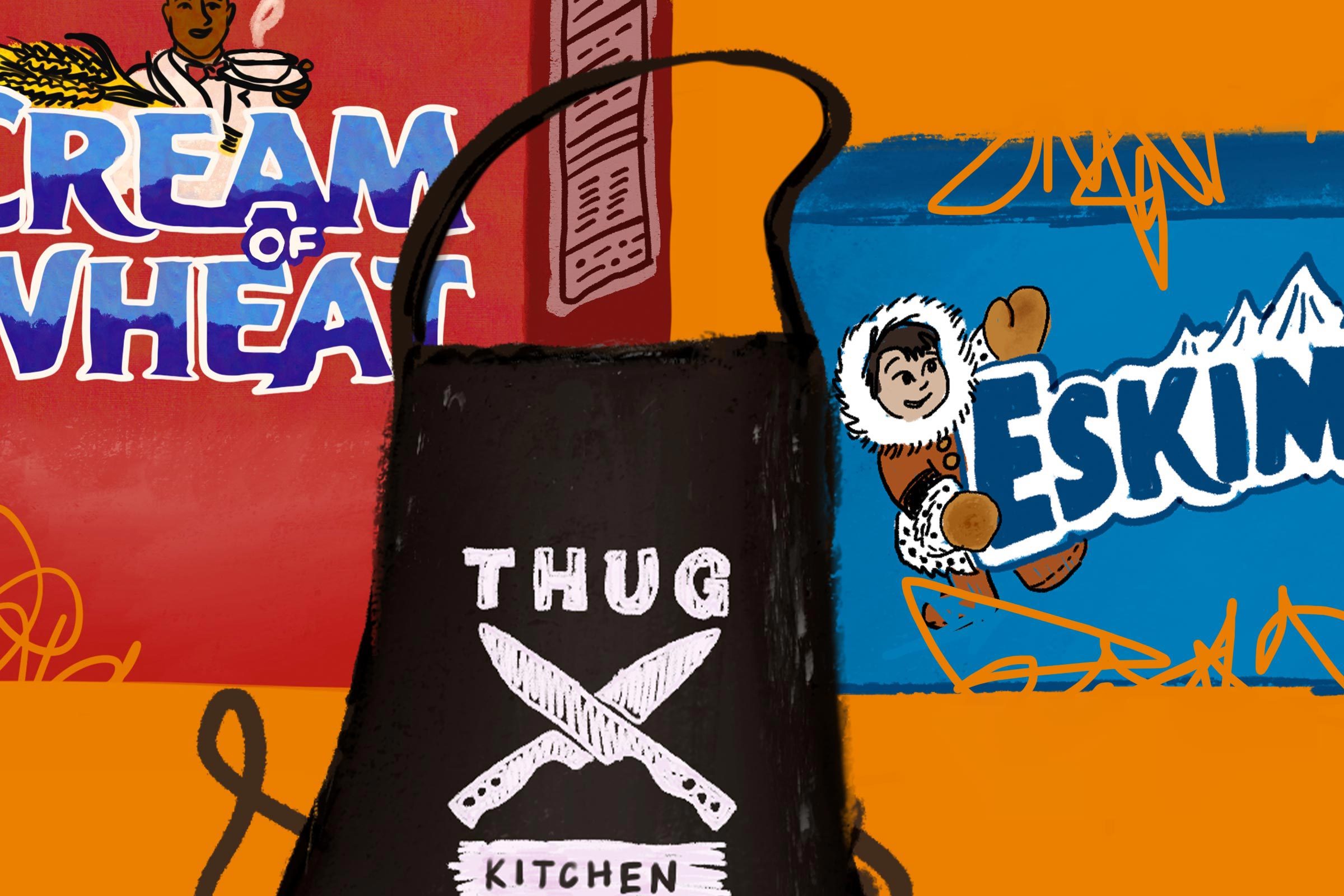
Time for a makeover
America has hundreds of instantly identifiable logos that have stood the test of time. For example, Coca-Cola’s logo has used the same loopy script since 1886 and John Deere has featured the same leaping buck since 1876. But logos don’t always hold up—and this year, amid global demonstrations against systemic racism, inequality, and police brutality—many companies have finally decided to ditch those images that have been identified as harmful and offensive.
Ahead, we’ve found the most well-known logos that may soon disappear forever. From Aunt Jemima, which has been criticized for perpetuating a harmful racial stereotype, to vegan brand Thug Kitchen, which has been accused of appropriating Black culture, these brands have committed to changing various parts of their logos, packaging, names, and marketing strategies to eliminate cultural insensitivities. And for more things you might not know about popular brands, don’t miss the 36 hidden messages in logos you see all the time.
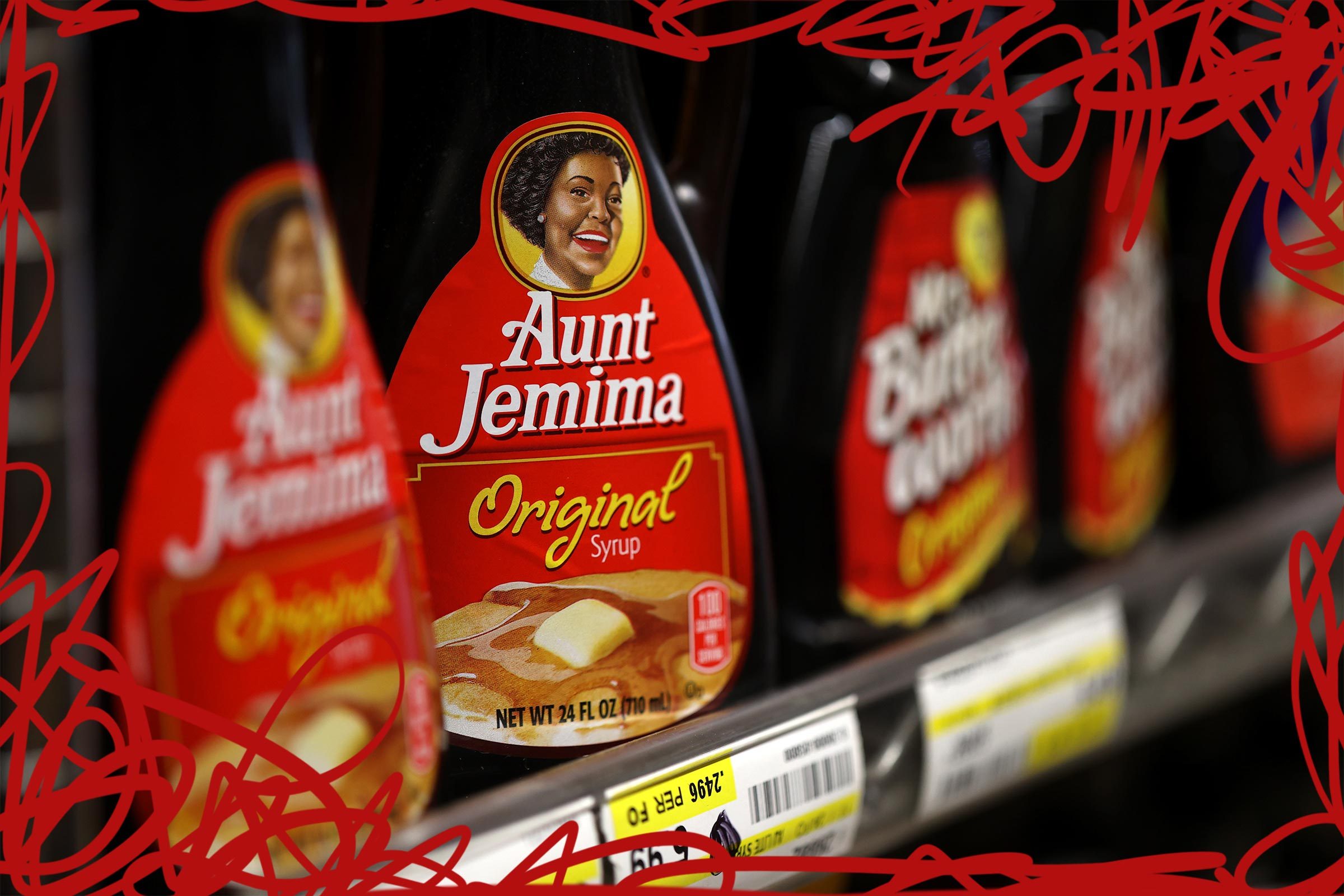
Aunt Jemima
The thought of Aunt Jemima might bring up sweet memories from your childhood, but the branding is actually based on a harmful racial stereotype. According to Riché Richardson, an associate professor in the Africana Studies and Research Center at Cornell University, the logo is based on the idea of the “mammy,” a “devoted and submissive servant who eagerly nurtured the children of her White master and mistress while neglecting her own.” Plantation myth portrayed the mammy as an “asexual, plump black woman wearing a headscarf,” Richardson wrote for the New York Times. After years of criticism, Quaker Oats, the company that owns the Aunt Jemima brand, recently announced it would remove the 130-year-old logo from its packaging in late 2020 and rename the brand at a later date. Changing offensive brand names is one of the 24 positive changes we’ve seen since the anti-racism movement began.
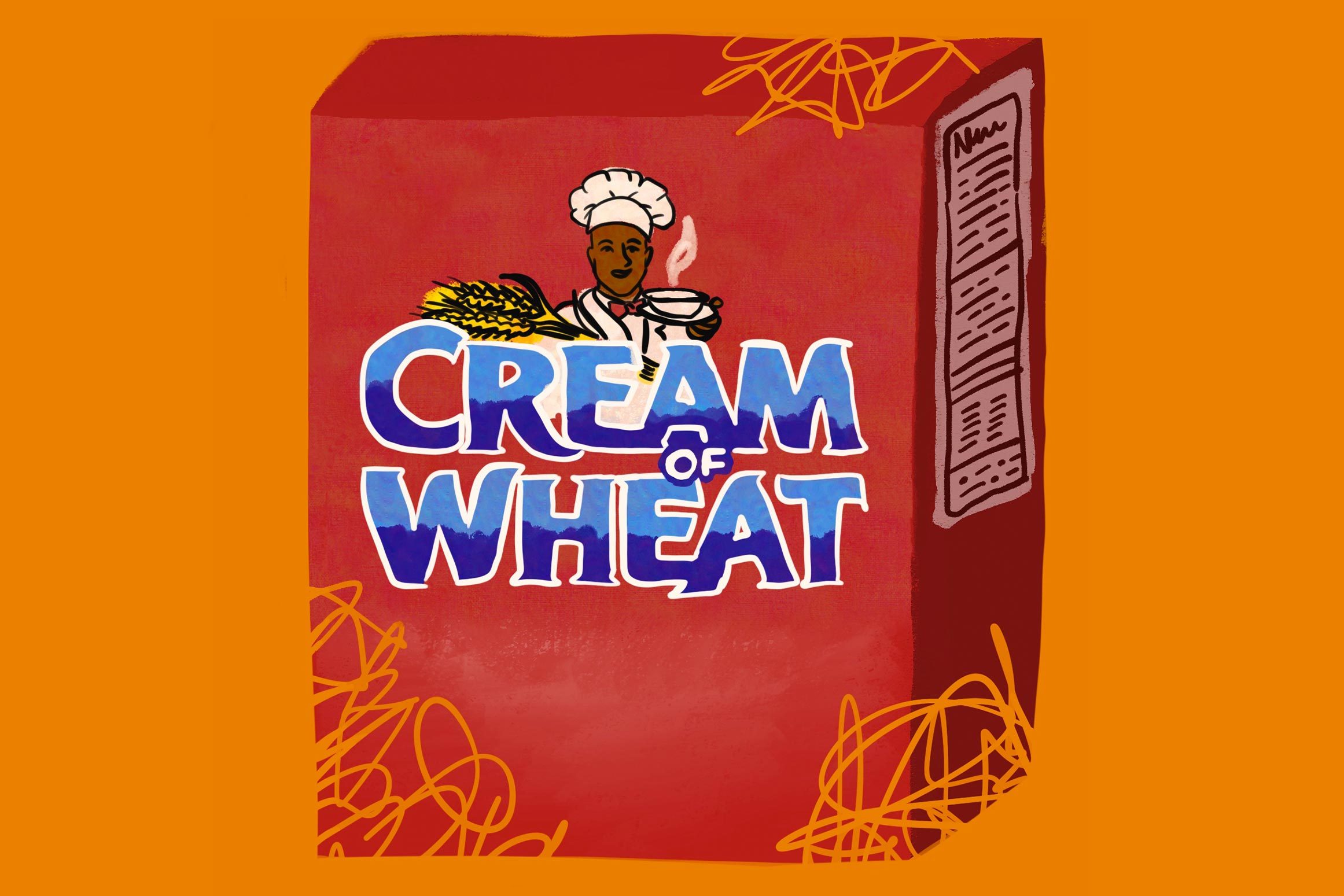
Cream of Wheat
Cream of Wheat has one of the most well-known logos in the breakfast aisle, but the image of the smiling chef has a darker history than you might think. When the cold cereal launched in the 1890s, its mascot was a Black chef named Rastus, a racist caricature that appeared in minstrel shows. In the 1920s, the breakfast brand removed the image of Rastus and replaced it with one based on a photo of a Black Chicago chef named Frank White. Still, critics say the brand didn’t go far enough to eliminate the offensive stereotype, and that the subtext of the image is still there. In June, B&G Foods, the maker of Cream of Wheat, announced it would review its packaging.
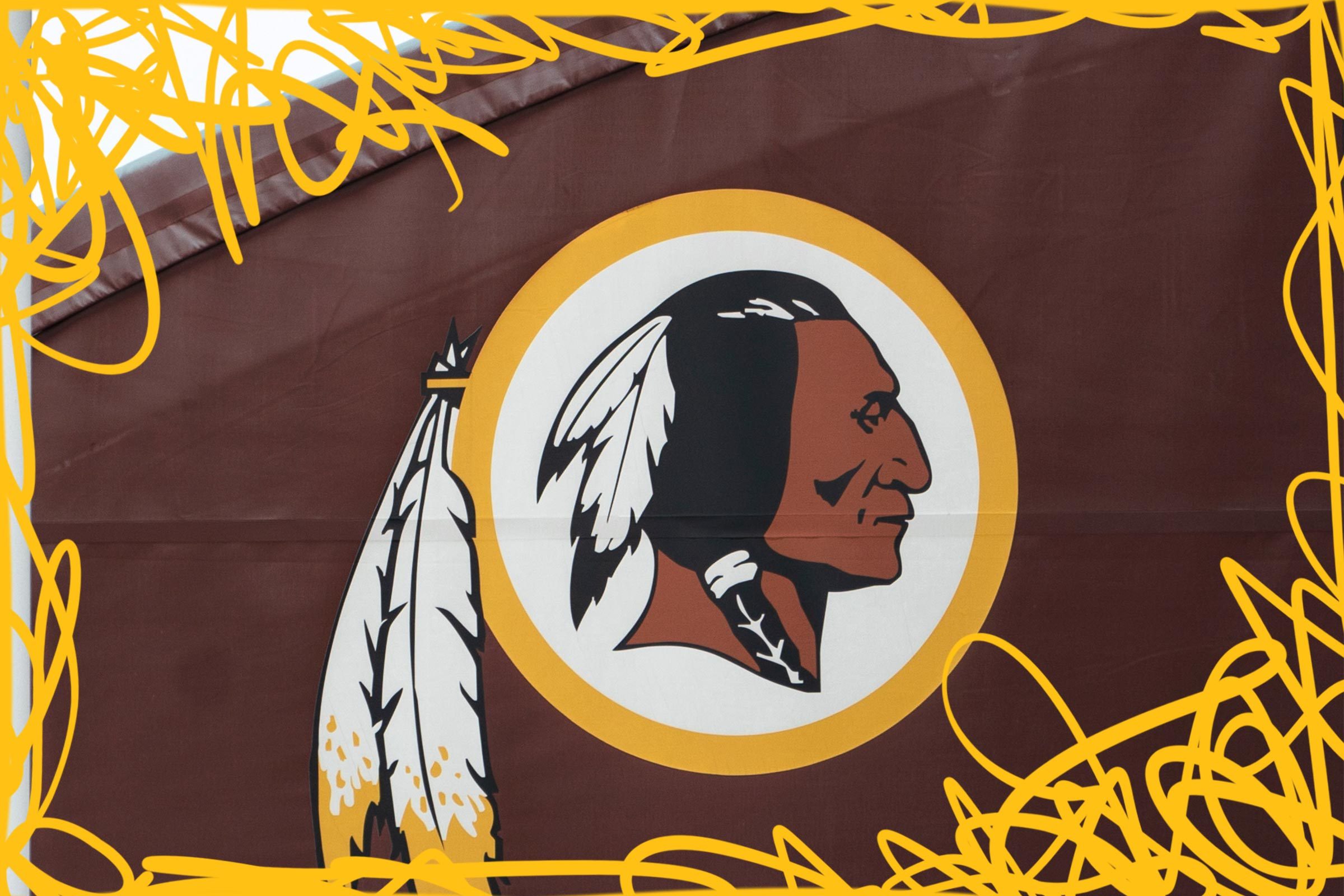
The Washington Redskins
The 87-year-old name of this NFL team has been criticized as being racist and insensitive for decades, but it wasn’t until this summer that the organization decided to change it. In July, the team ditched its old name and announced it would call itself the “Washington Football Team” as it searches for a new name and logo; that same month, Washington Redskin merchandise landed on the list of things Amazon won’t sell anymore. According to Merriam-Webster, the word “redskin” is “used as an insulting and contemptuous term for an American Indian.” In 2013, team owner Dan Snyder told USA Today he wouldn’t budge on the name. “We’ll never change the name. It’s that simple. NEVER—you can use caps,” he said. In the end, it was criticism from financial sponsors and activists that put the final nail in the coffin on this offensive name.
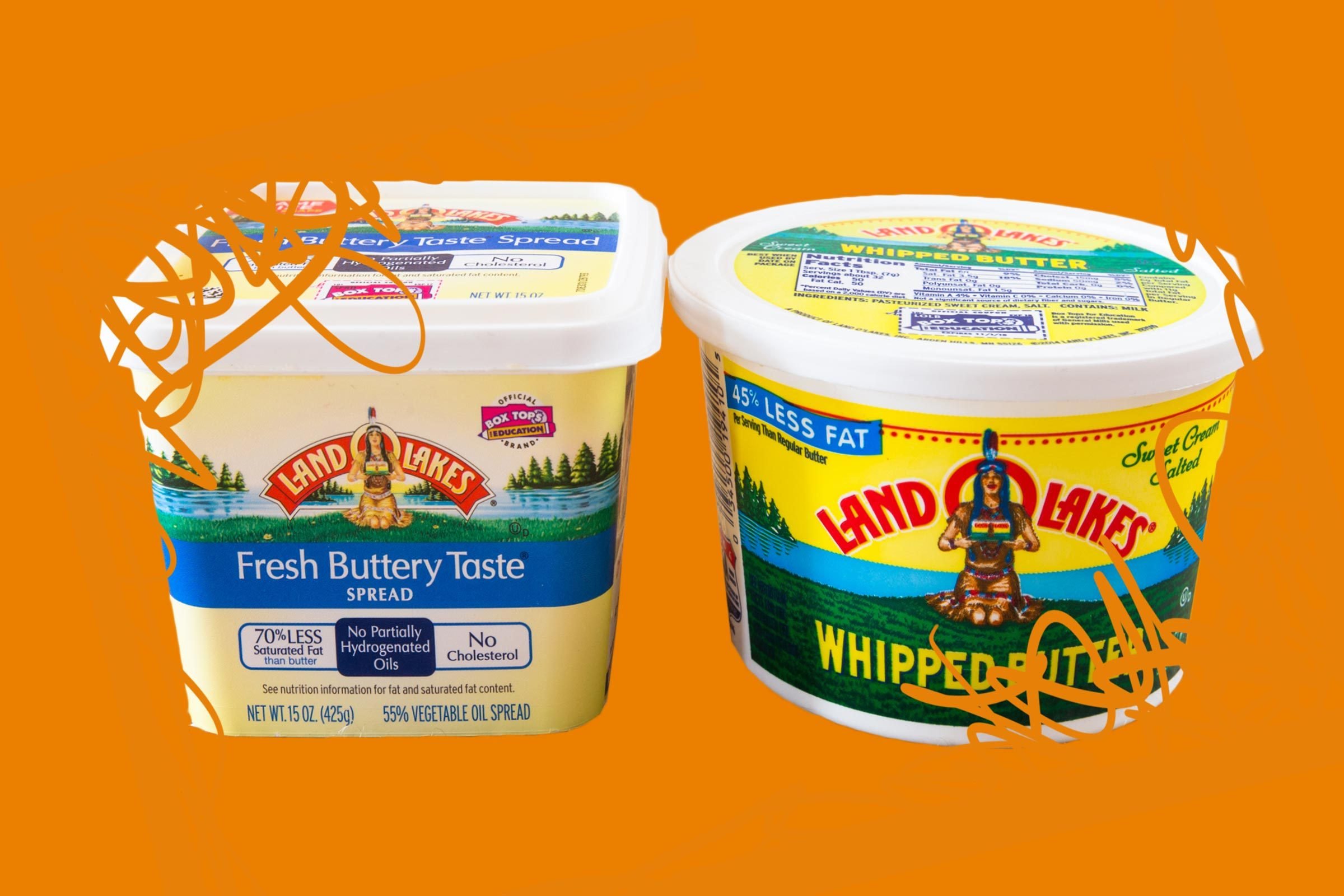
Land O’ Lakes Butter
For more than 100 years, the Land O’ Lakes butter container featured the image of a Native American woman in front of a lake surrounded by pine trees. But in February 2020, the brand quietly changed. The new package shows the same woodsy vista, but the Native American woman has been removed. The brand noted that some Land O’Lakes products will now include photos of the Minnesota-based company’s farmers. After the update, Minnesota Lt. Governor Peggy Flanagan tweeted, “Thank you to Land O’Lakes for making this important and needed change. Native people are not mascots or logos. We are very much still here.” And to eliminate insensitivities from your vocabulary, make sure you know these 12 surprisingly offensive words you need to stop saying.
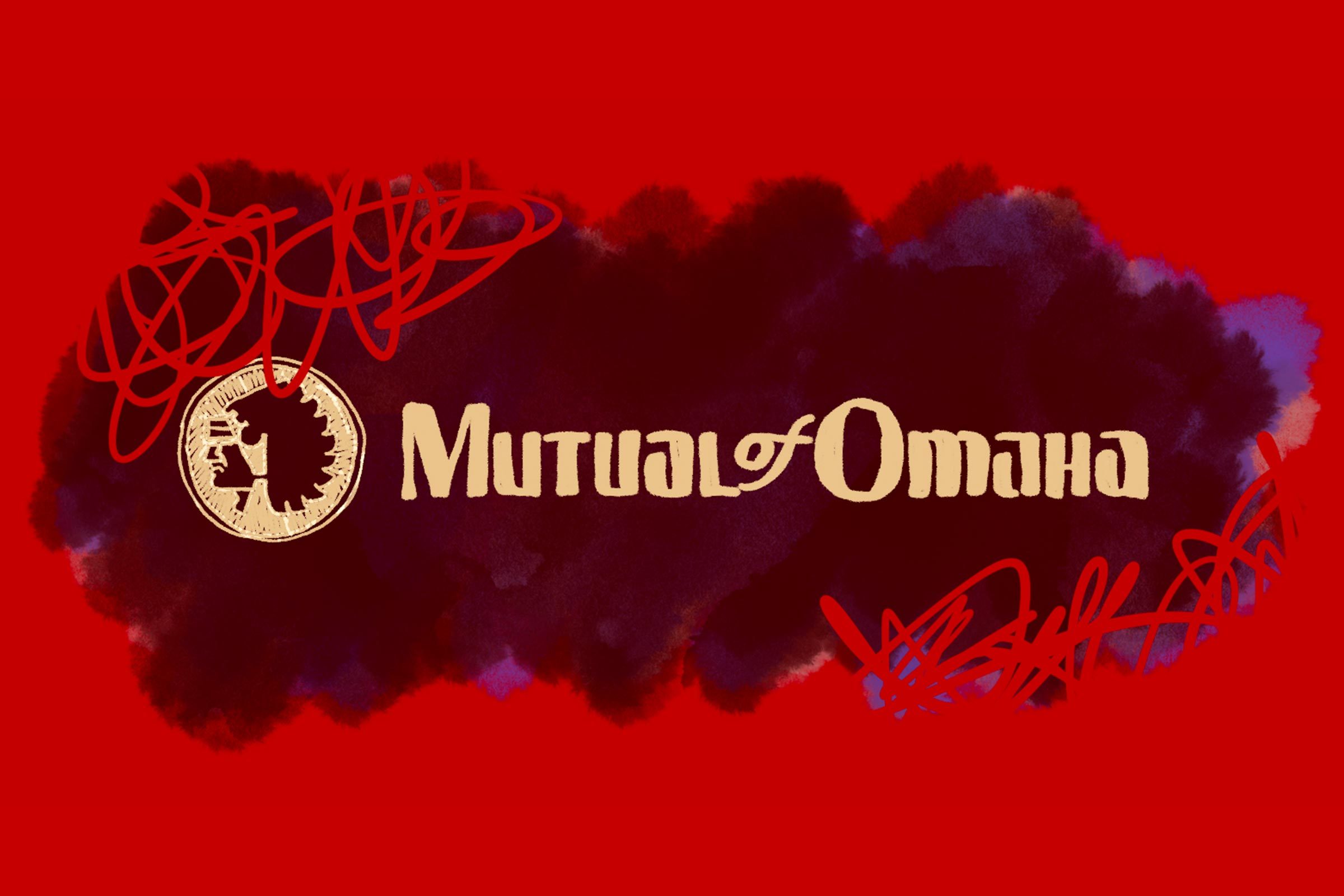
Mutual of Omaha
In July, Mutual of Omaha joined a long list of companies and organizations that have decided to remove Native American imagery from their branding and logos. CEO James Blackledge told the Omaha World-Herald that the logo was adopted as a symbol of “strength and respect,” but understood why it needed to be replaced. “We are still using a symbol from another culture that isn’t ours,” Blackledge told the paper. “We don’t want to or need to appropriate that symbol. The Mutual of Omaha name stands on its own, and we want to be part of the change that’s happening.” And to learn more about American indigenous people, don’t miss these facts about Native American traditions and beliefs.
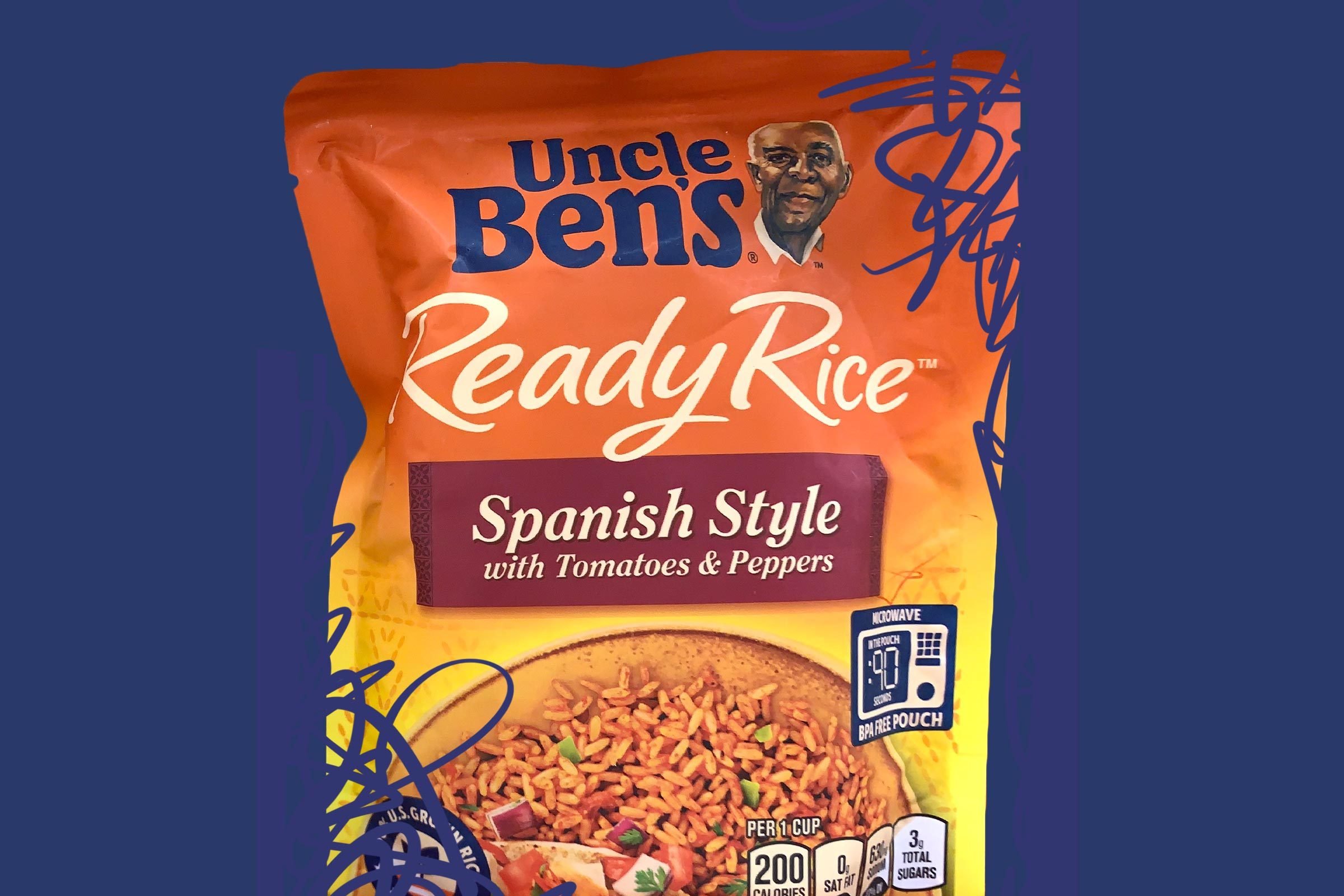
Uncle Ben’s
Rice label Uncle Ben’s is yet another brand that has a name and logo based on an offensive racial stereotype. In this case, the term “uncle” refers to the way white southerners addressed older enslaved people, as opposed to calling them “Mister.” In September, the brand announced it will now be called Ben’s Original and the imagery will be redone. “While implementing an evolution on this scale will be a complex process that will take considerable time, there is no better time than right now,” read a statement by Mars, Incorporated, the parent company of Uncle Ben’s. “We will begin production of our new brand identity immediately and Ben’s Original will begin reaching store shelves early next year.”
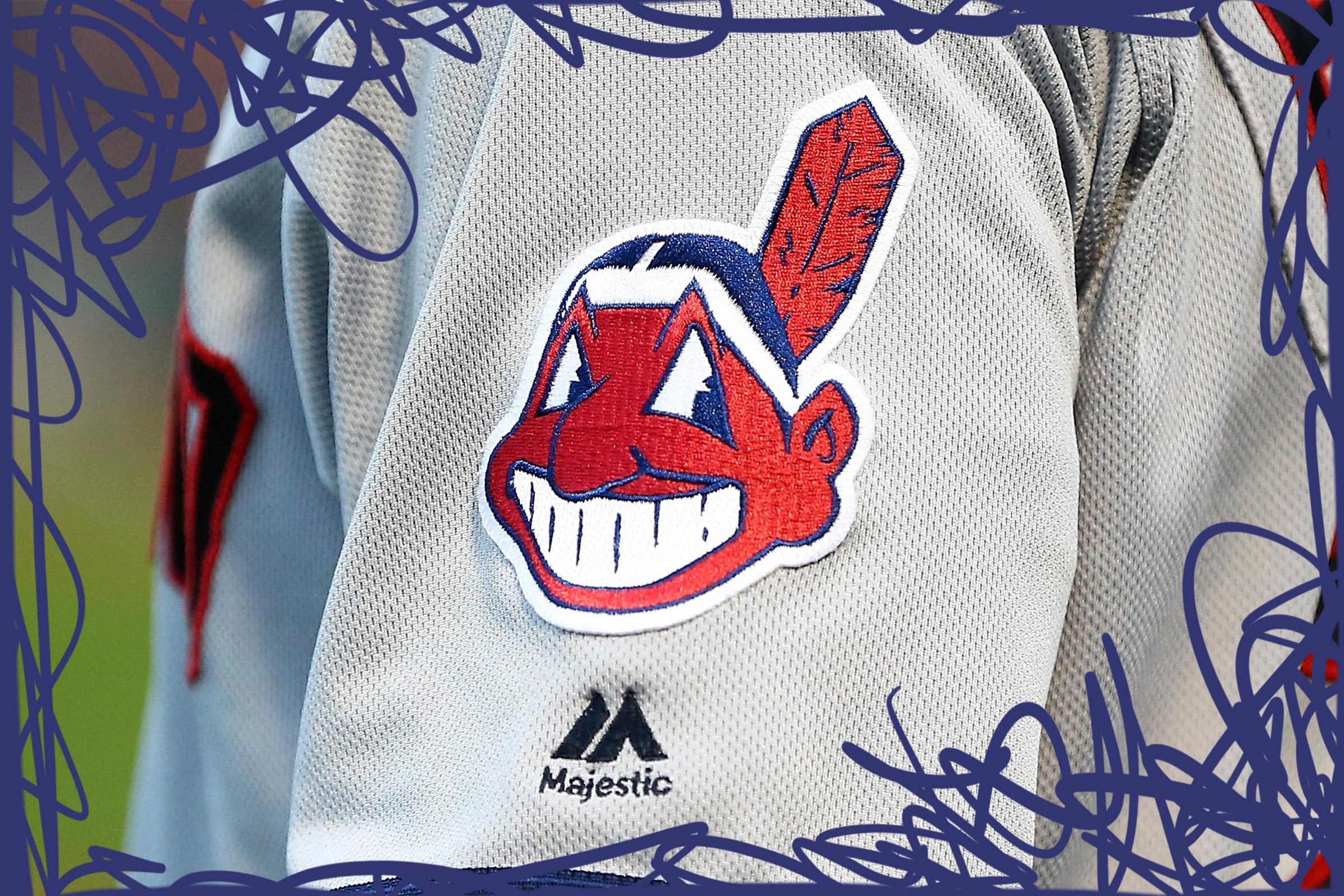
The Cleveland Indians
Professional sports will see not one, but two team name changes this year. While critics have denounced the Cleveland Indians’ name for decades, no steps had been taken to change it until this year. Fortunately, the MLB team is moving fast. In their season opener against the Royals in July, the players opted to wear their road uniforms at home, notable because the road uniforms say “Cleveland,” while the home uniforms say “Indians.”
Before the game, shortstop Francisco Lindor told reporters, “We are going to be wearing the Cleveland jerseys to bring awareness that this is a start. We hope it’s a start of a change. We know change is due and it is time,” he said. “We can only change things by making people acknowledge and educate themselves that change is due and to recognize that there are certain areas in life that are not right and not where they need to be…I stand by my teammates. I stand by minorities and people who need the spotlight.”
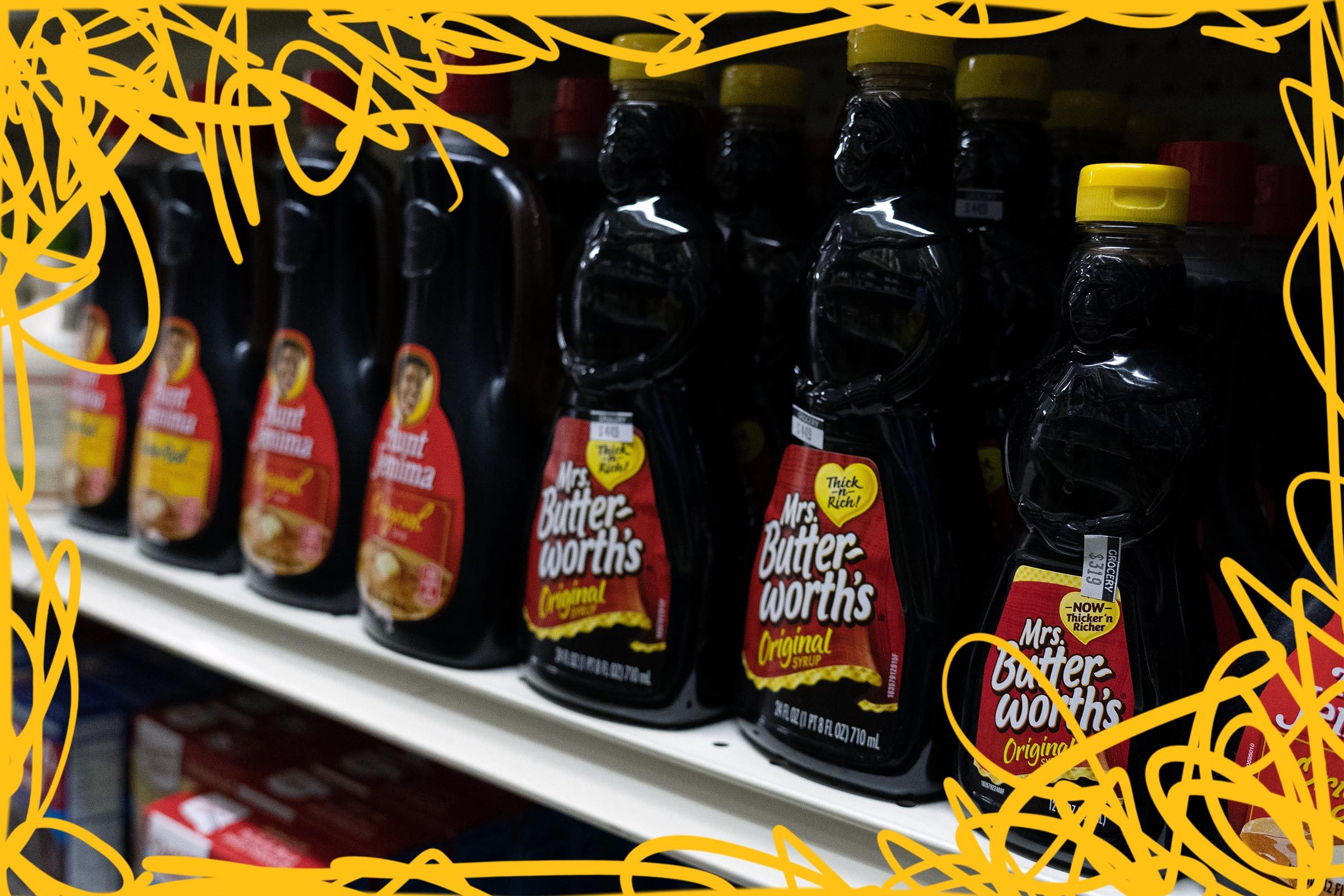
Mrs. Butterworth’s
In the same aisle of the supermarket as Aunt Jemima, Mrs. Butterworth’s is another syrup brand that has recently come under fire for perpetuating the “mammy” stereotype. Although the race of Mrs. Butterworth has never been specified, some reports say the bottle was modeled after Thelma “Butterfly” McQueen, the actress who played Scarlett O’Hara’s maid in Gone with the Wind. Conagra Brands, the parent company of Mrs. Butterworth’s, acknowledged their fault. “The Mrs. Butterworth’s brand, including its syrup packaging, is intended to evoke the images of a loving grandmother,” said the company in a statement. “We stand in solidarity with our Black and Brown communities and we can see that our packaging may be interpreted in a way that is wholly inconsistent with our values.” They said they’d launch a complete brand and packaging review of the product.
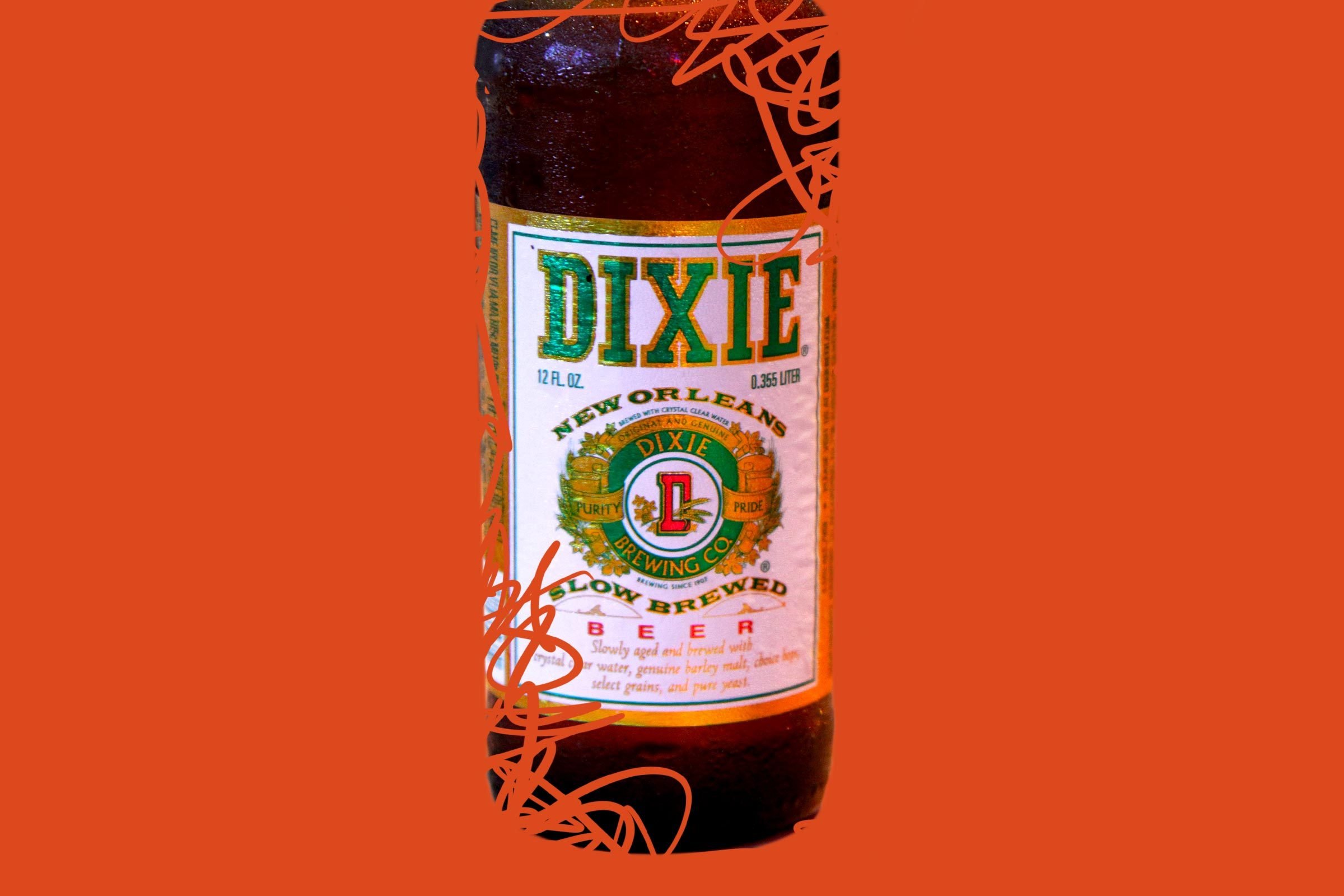
Dixie Beer
Established in 1907, Dixie Beer now boasts the title of the oldest brewing company in New Orleans. However, while the beer isn’t going anywhere, the name might be. This summer, the company vowed to remove the word “Dixie” from its brand and launched a webpage that allows visitors to submit new name suggestions. The word “Dixie” is considered problematic because of its association with the old South and Confederate states, as well as its ties to slavery. In June, the Dixie Chicks also decided to remove the word from their name; the trio is now called The Chicks.
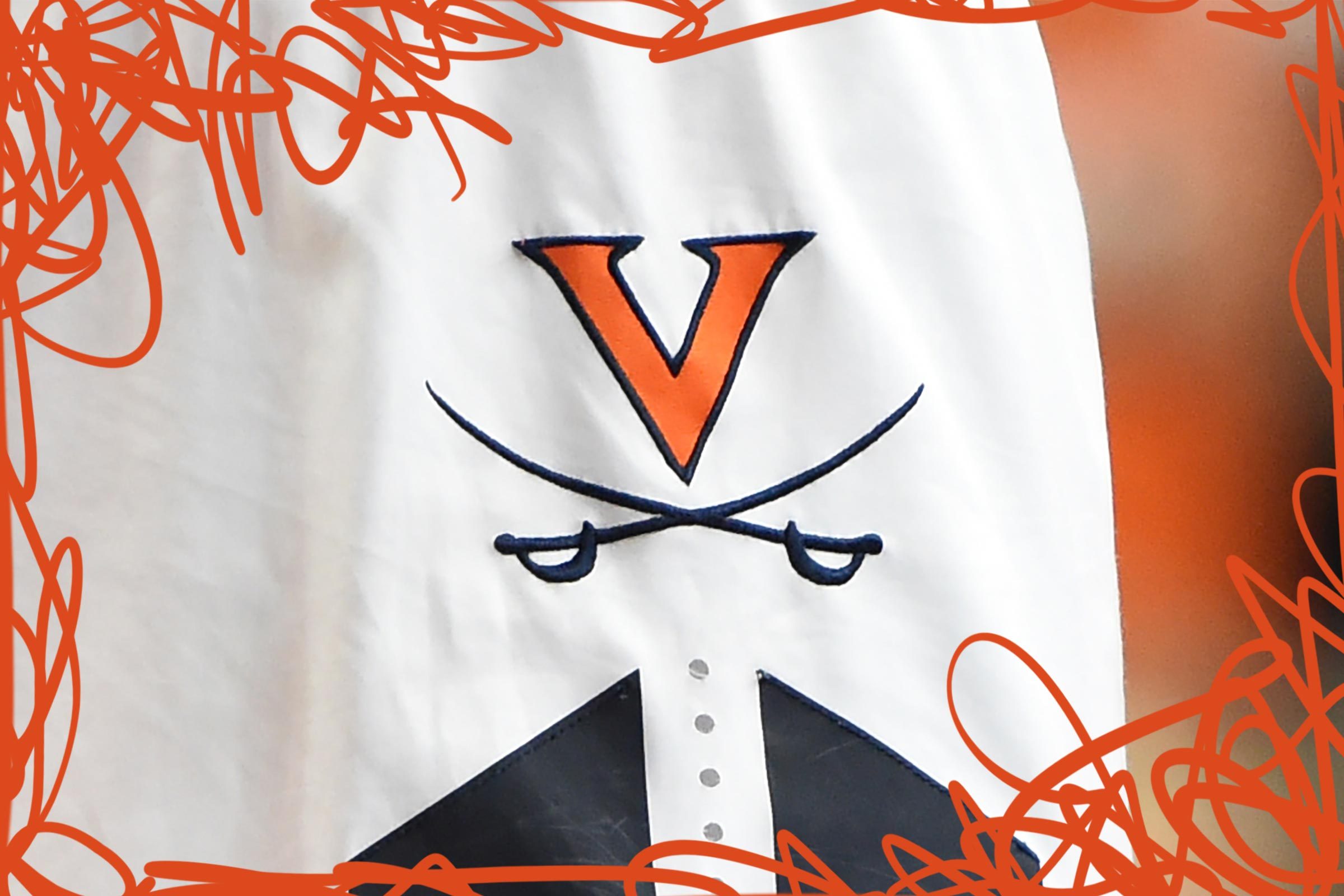
University of Virginia
Sports teams and food brands aren’t the only groups that have begun updating their names and logos—universities are doing it too. In June, the University of Virginia announced it would change its athletic program’s logo after criticism that it contained a reference to slavery on the school’s campus. Previously, the handles on the sabres included curves, which were a nod to the serpentine walls found on the school’s grounds. However, members of the university community noted that the serpentine walls were originally designed to hide enslaved people from view. “I was not previously aware of the historical perspective,” athletic director Carla Williams said in a statement. “There was no intent to cause harm, but we did, and for that I apologize to those who bear the pain of slavery in our history.” The university will update the logo to include smooth handles.
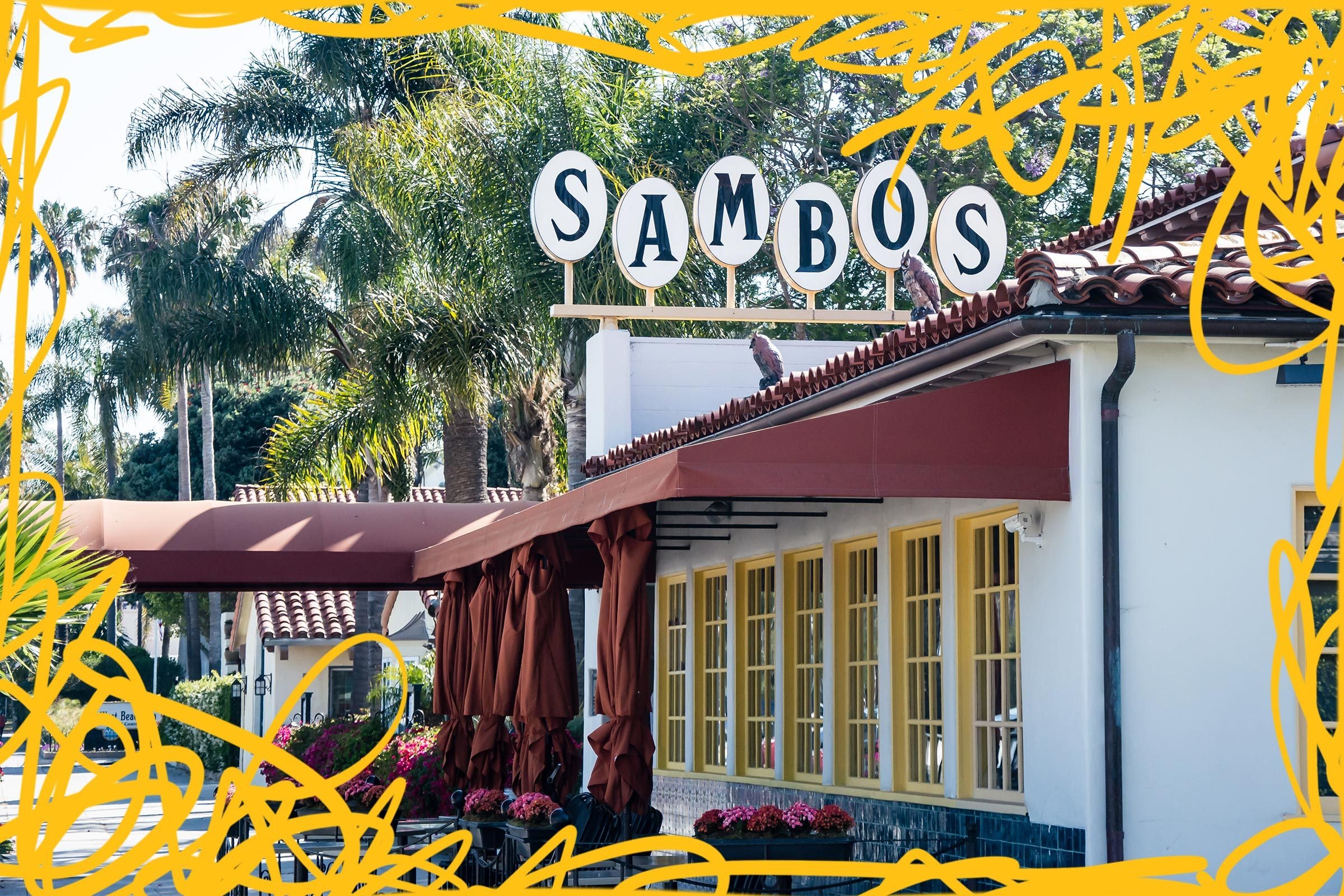
Sambo’s
Once a chain with some 1,100 restaurants in 47 states, the Sambo’s brand is now down to just one location in Santa Barbara, California. The name of the restaurant has been a point of contention for decades, and numerous lawsuits have been filed against the company in relation to its name since the 1970s. According to the Jim Crowe Museum of Racist Memorabilia, the name “Sambo” has been an established anti-Black epithet that has symbolized the “lazy, grinning, docile, childlike, good-for-little servant” since the 19th century. Today, it is considered an offensive racial slur. In June, the California restaurant finally decided to nix the name by putting a peace symbol with the word “LOVE” one top of the original Sambo’s sign. Learn about other fast-food scandals that rocked the industry.
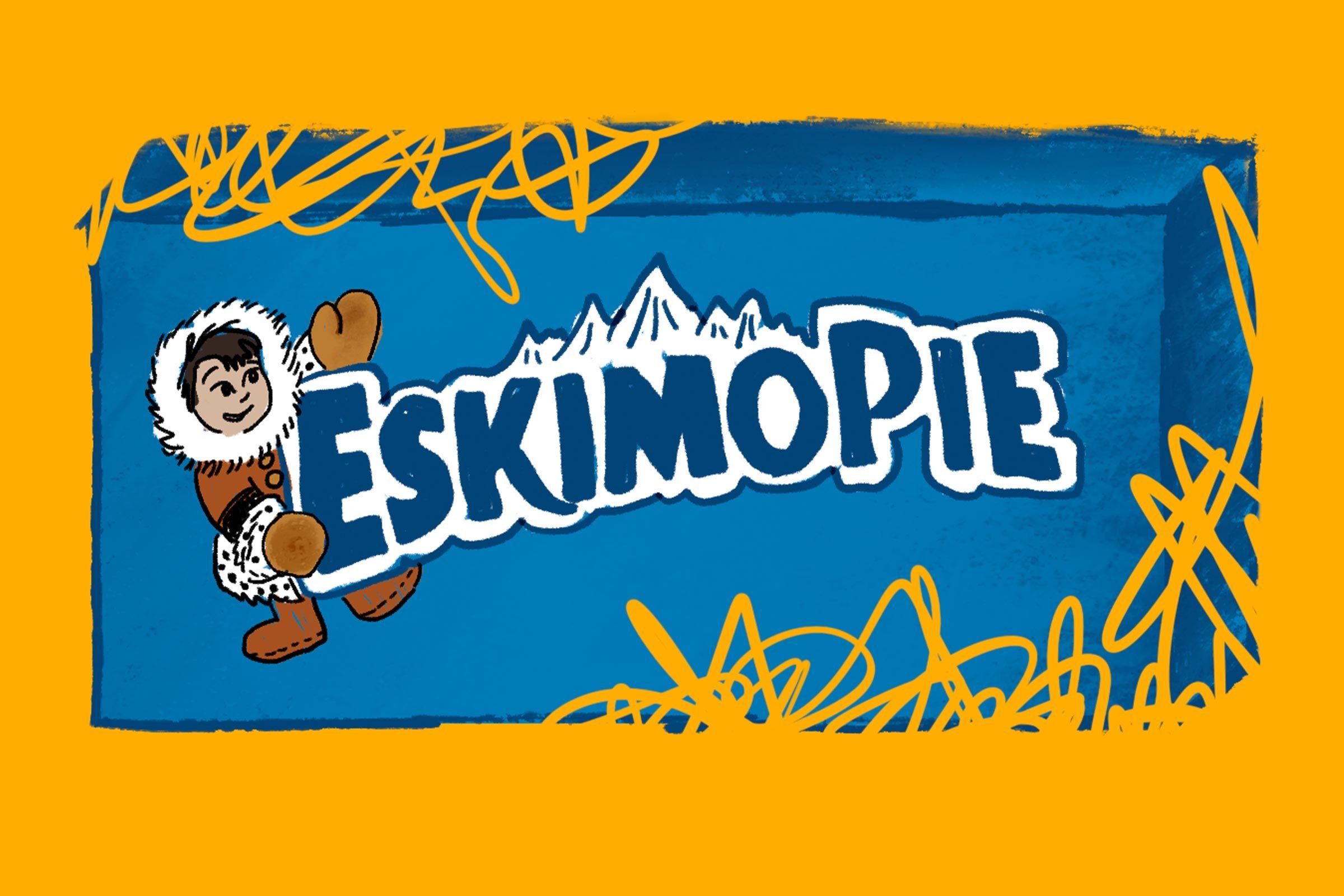
Eskimo Pie
These chocolate-covered ice-cream bars have been around for almost a century—but their branding probably won’t last much longer. In June, Dreyer Ice Cream, the company that owns Eskimo Pie, announced it would overhaul the chilly treat’s marketing strategy by the end of the year. The rebrand will eliminate the word “Eskimo” from the name. According to the Alaska Native Language Center, the term “Eskimo” is commonly used in Alaska to refer to all Inuit and Yupik people; it is considered offensive because it was imposed by colonists and non-Indigenous people. “We are committed to being a part of the solution on racial equality, and recognize the term is derogatory,” Elizabell Marquez, head of marketing for parent company Dreyer’s Grand Ice Cream, told CNN.
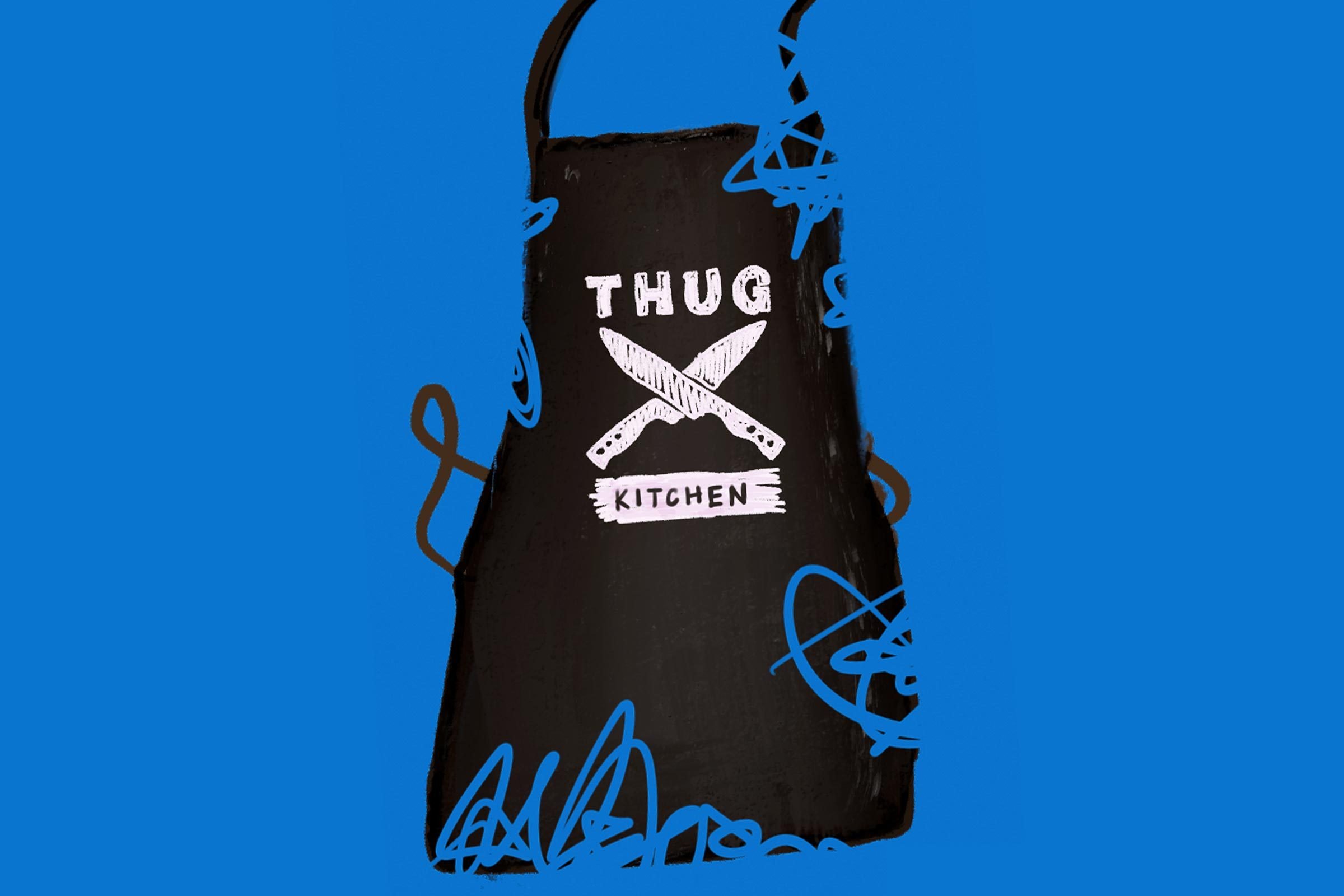
Thug Kitchen
The vegan brand Thug Kitchen only launched in 2012, but its founders have decided that it’s already time for a rebrand. Thug Kitchen started as an anonymous blog featuring vegan recipes and tips that frequently referenced rap lyrics and Black artists and often used African-American Vernacular English (AAVE). All that was fine—until 2014, when it was discovered that the founders were two White people living in Los Angeles. After that, critics accused the pair of appropriating Black culture.
In June, the founders released a statement announcing their intended change: “When we first launched Thug Kitchen in 2012, we wanted our name to signal our brand’s grit in the otherwise polished and elitist food scene. Over the years, as our critics pointed out the racist connotations of two White people using the word ‘thug,’ we tried to contextualize it by talking about our backgrounds and our beliefs. We realize, however, that whatever our original intention, our use of it reflected our privilege and ignored the reality that the word is assigned to black people in an attempt to dehumanize them … We apologize.” The pair recently renamed the brand Bad Manners.
.
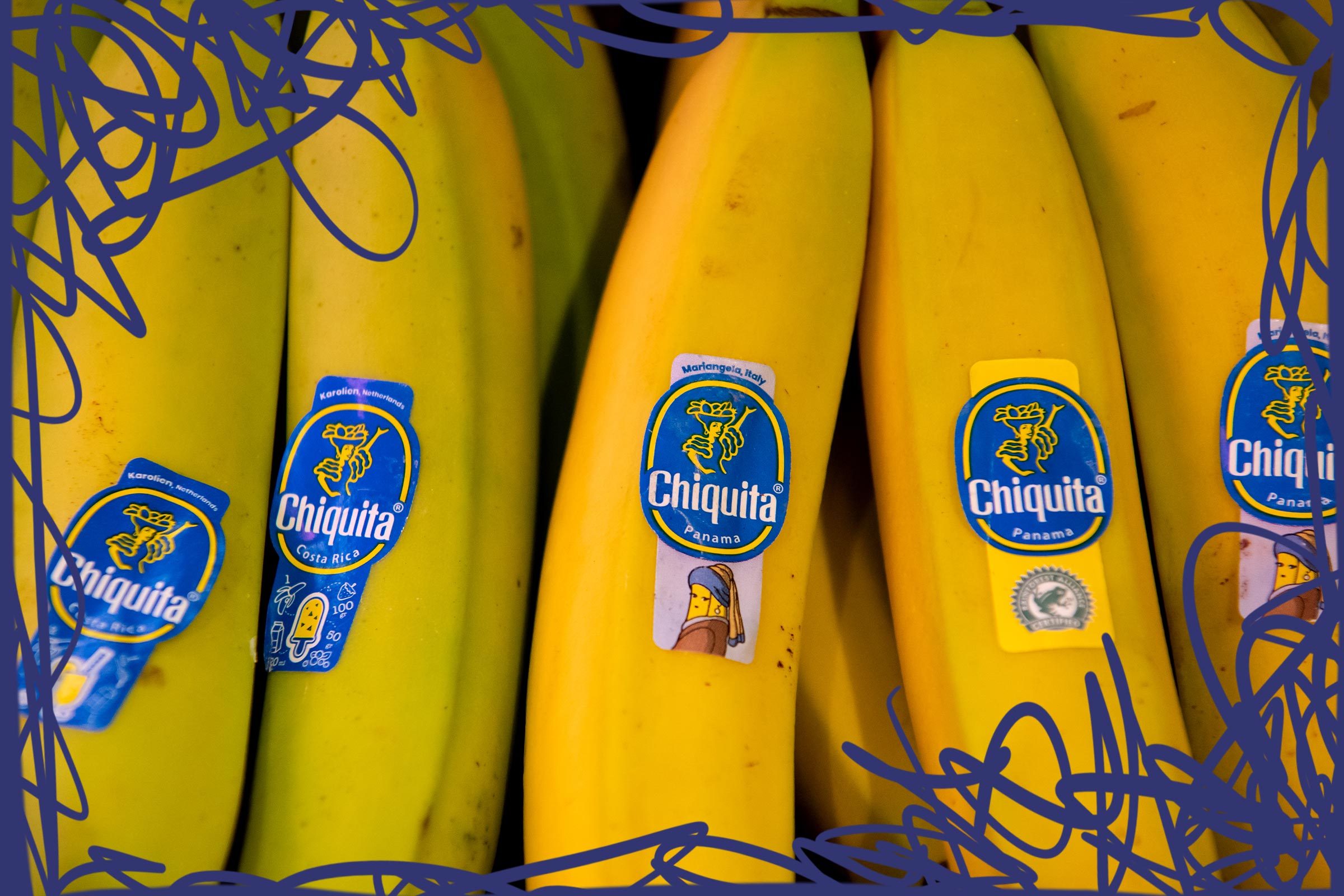
Miss Chiquita
If you’ve ever scanned the sticker on your bananas before you’ve taken a bite, you might’ve caught a glimpse of the Miss Chiquita logo. The blue and white design features a smiling woman in a fruit hat wearing a dress with frilly sleeves. In earlier versions of the logo, Miss Chiquita was a cartoon banana who struck sexy poses. Because of all this, the brand has long been criticized for the way its logo exoticizes and hypersexualizes Latina women. The company hasn’t announced any plans to update its logo, but they have faced increased pressure to reevaluate it—especially as other brands in the food space commit to change. Next, here’s what it means to be an ally in the movement toward equality.
